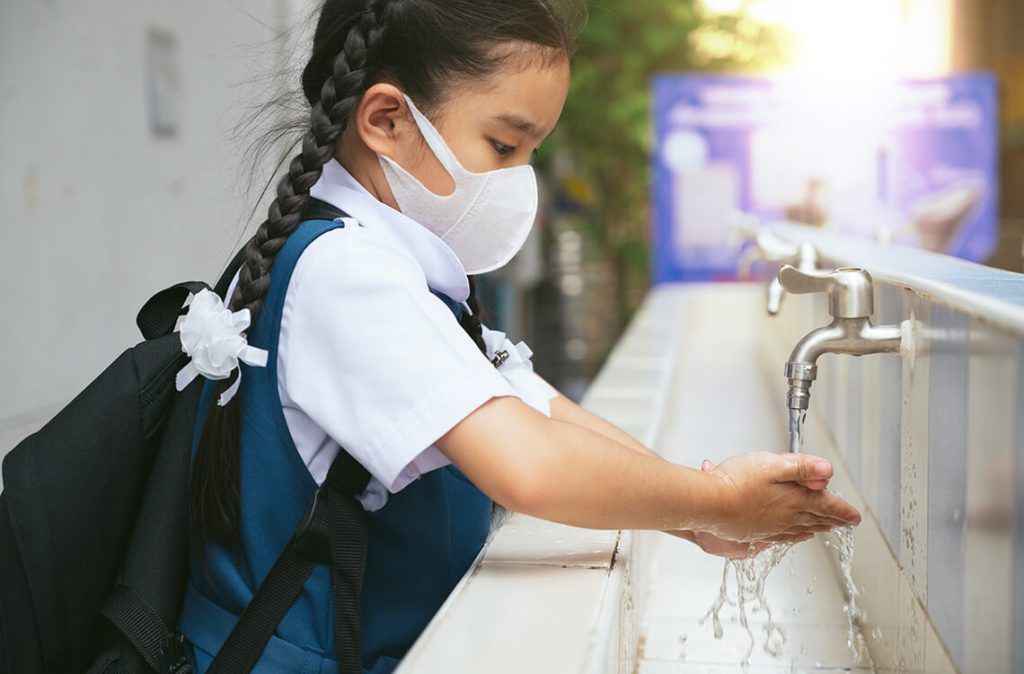The years-long pandemic we experienced just a few months ago may have ended.
But that doesn’t mean we should let our kids run around without ensuring they take care of their hygiene.
After all, even if the virus-that-shall-not-be-named is a slightly lesser threat today, there are dozens of other airborne pathogens that can make your kids just as ill.
Kids in general tend to be quite carefree about things like hygiene. Which may be why certain viruses pass so easily between children who go the same school.
As kids return to school, it’s important to teach them good hygiene practices to help prevent the spread of germs and keep them healthy.
Here are some essential hygiene practices you should teach your kids.
Hygiene Basics Every Child Should Know
Washing Hands
Hand washing remains the first line of defence when it comes to preventing, avoiding and eliminating the threat of contagious diseases.
This does not only include upper respiratory infections like COVID-19, the common cold and the flu. There’s also chicken pox, measles, pink eye and the dreaded hand, foot, and mouth disease.
Hence, encourage your child to wash their hands regularly with soap and water for at least 20 seconds.
This should be done as often as possible but especially before eating, after using the toilet, and after coughing, blowing their nose or sneezing.
A hand sanitiser is a good alternative, especially an alcohol-free one.
Covering Mouth and Nose
The second precautionary measure to prevent the spread of contagious diseases is to teach your child to cover their mouth and nose when they sneeze or cough.
Germs that travel via airborne transmission are easily passed from person to person by droplets of infected saliva and other bodily fluids.
Remind your child to always cover their mouth and nose with a tissue, handkerchief or their elbow when they cough or sneeze to prevent the spread of germs.
Alternatively, get them a face mask to help reduce the risk of them getting infected from other people’s droplets.
Avoid Face Touching
Contagious diseases that spread through contact are easily transmitted when we touch the ‘entry zones’ of our bodies.
Those places where germs are likely to invade our system. These high-risk areas your mouth, nose and eyes.
Why is this so, you may ask?
Well, our mouths and noses especially provide a nice, warm and moist environment for germs to thrive.
Plus, they are entryways into our respiratory and digestive systems.
So, remind your child to avoid touching their face—especially their eyes, nose, and mouth—to reduce the risk of infection.
This includes normal everyday things they may do like picking their noses, biting their fingernails or rubbing their eyes.
Social Distancing
Teach your child to be aware of their surroundings.
Remind them to watch out for other kids in their classroom who are displaying typical symptoms of infection: sneezing, coughing, low mood, runny nose, etc.
In which case its probably best that they keep their distance, even if the sick child is their best friend.
This may be something that your kids have a hard time doing.
Explain the importance of social distancing to your child and encourage them to keep a safe distance from others as much as possible.
Cleaning and Disinfecting
Sometimes washing our hands may not be enough. Not if we’re continuously exposed to contaminated objects.
In which case, its important that your kids learn to sanitise their belongings and space as often as they can.
Especially during flu season or when there’s been an outbreak at their school. We shouldn’t only rely on teachers to get it done.
Encourage your child to clean and disinfect their personal items such as backpacks, lunch boxes, and water bottles regularly to reduce the spread of germs.
Antibacterial wet wipes may be the convenient option, but do take note of something called contact time.
Staying Home When Sick
Sometimes kids don’t tell you when they’re sick. Or they may downplay their own symptoms.
After all, learning and playing with their friends at school is way more fun than being stuck at home with nothing to do.
Teach your child the importance of staying home when they’re feeling unwell to prevent the spread of illness to others.
Remind them that they don’t want their friends to get sick as well.
It’s also important that you take your child seriously when they tell you they’re sick.
The symptoms may not always be apparent to you. Your child may not have a fever or runny nose, but if they’re feeling strange, the infection may only be at the beginning stages.
Keep Those Sick Days at Bay
Help you child master these hygiene basics, parents.
Not only to protect themselves from infections but also to avoid getting their friends, siblings and yes, even you, their parents, from getting sick as well.
With any luck, they’ll stay healthy and happy all year with nothing for you to worry about.
All it takes is a little patience and a little practice. You’ve got this!
Disclaimer: The information provided in this article is for informational purposes only and should not be considered as medical advice from Motherhood. For any health-related concerns, it is advisable to consult with a qualified healthcare professional or medical practitioner.
For more insightful stories and fun recipes, stay tuned to Motherhood Story!
